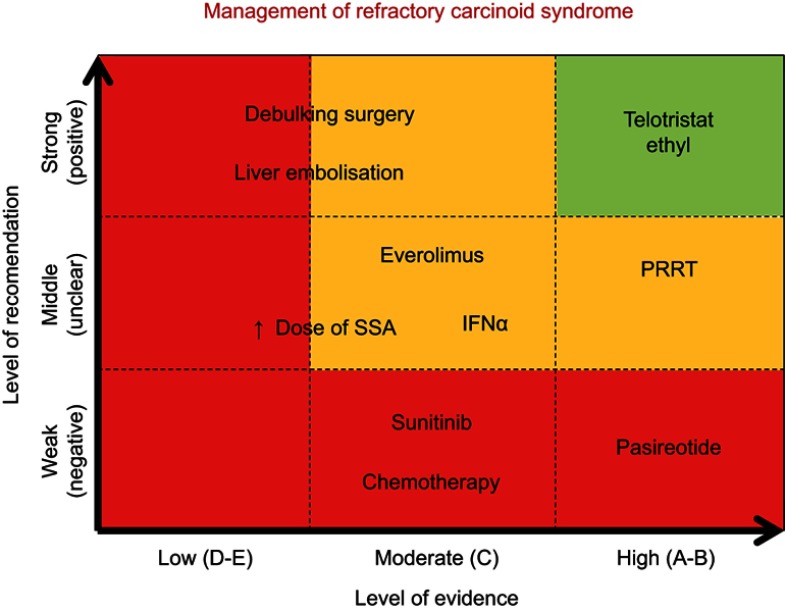Figure 2.
Overview of available treatment options for refractory carcinoid syndrome. Level of recommendation is classified as strong (positive) when there is literature available showing positive results and improvement of patient symptoms; weak (negative) if literature has shown no benefit on management of carcinoid syndrome; middle (unclear) if controversy exists. Level of evidence is classified as follows: Level A: there exists a meta-analysis of high standard or several randomized trials with consistent results; Level B: if randomized studies (level B1), therapeutic trials, quasi-experimental trials, or comparisons of populations (level B2) provide consistent results when considered together; Level C: there exist studies, therapeutic trials, quasi-experimental trials, or comparisons of populations, of which the results are not consistent when considered together; Level D: if either scientific data do not exist or there is only a series of cases; expert agreement: data do not exist but the experts are unanimous in their judgment.
Note: ↑, Increased.
Abbreviations: SSA, somatostatin analogs; PRRT, peptide receptor radionuclide therapy, INFα, alpha-interferon.

